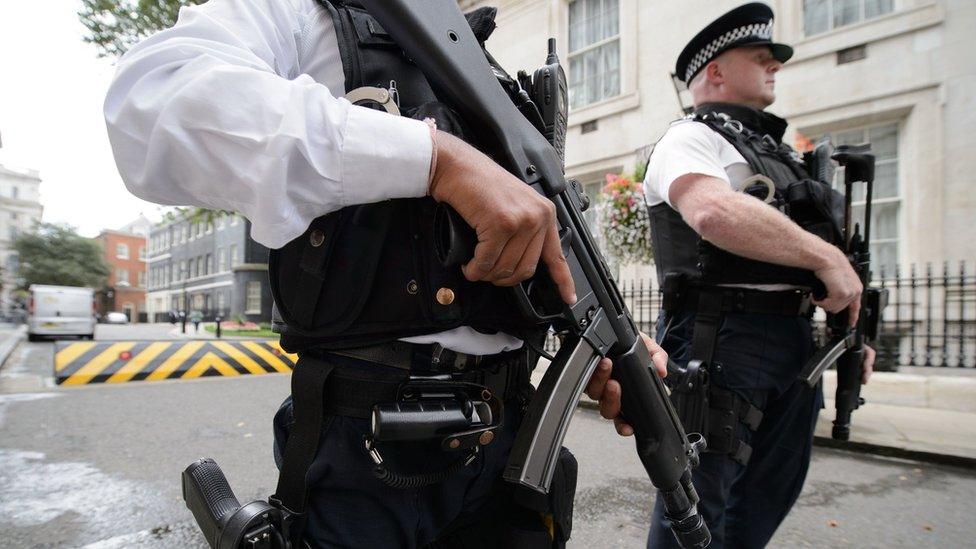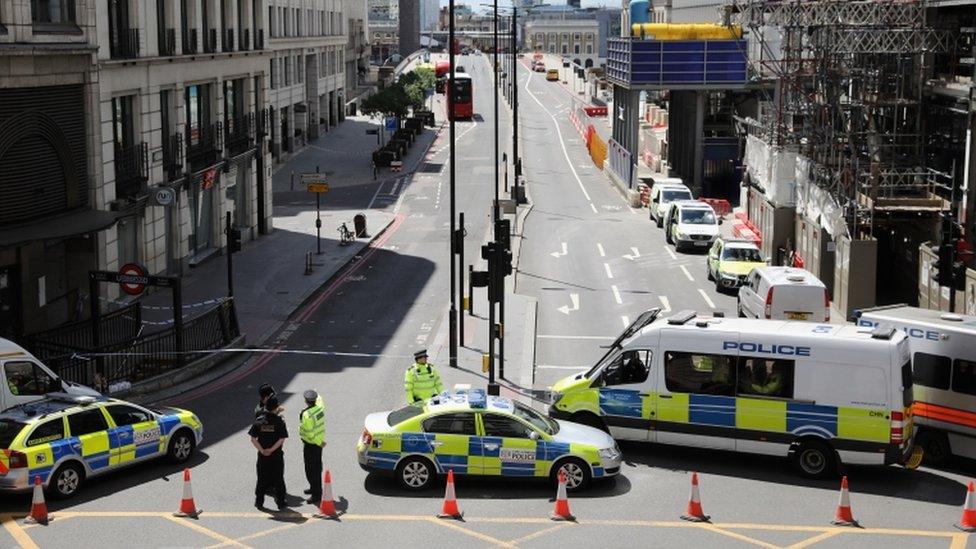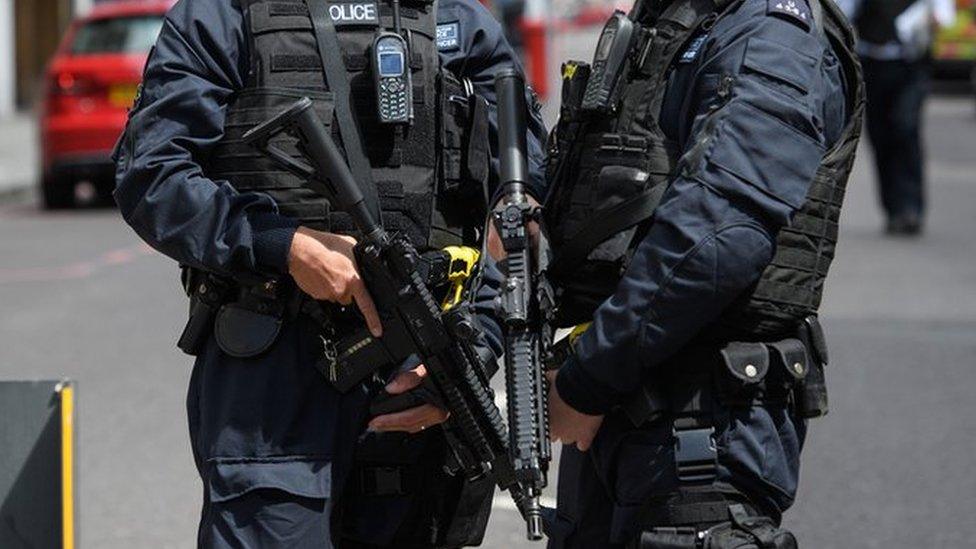Prevent terror referrals from public double in four months
- Published

The number of tip-offs made by the public to the government's anti-terrorism scheme Prevent has doubled in the last four months.
Police received some 200 referrals between April and July, compared to about 100 in the four months before.
The referrals were made in the period where the Manchester, London Bridge and Finsbury Park attacks occurred.
Prevent aims to support those at risk of joining extremist groups and carrying out terrorist activities.
In total, there were about 6,300 referrals to Prevent in 2016-17, but police say fewer than one in 10 came from the public.
The majority of referrals come from statutory agencies, such as teachers, health and social workers, police and the security services.
Simon Cole, who leads Prevent, said it was "encouraging" more people were contacting police about potential radicalisation.
"But if we are to successfully stop vulnerable people from being drawn into violent extremism, then family members, friends and community leaders must trust us sooner with their concerns.
"Not only will that possibly stop another lethal terrorist attack from taking place, but it will also potentially prevent vulnerable people from being drawn into criminal activity from which there is no coming back."
Figures also show that the share of referrals that relate to extreme right-wing ideology has doubled to about 15%, while 55% to 60% are linked to Islamist extremism.

Analysis
BBC home affairs correspondent Dominic Casciani
Although the number of referrals from the community remains very small, Chief Constable Cole says they are coming from all manner of places, including locations that are of the most concern to counter-terrorism chiefs.
The big question is why is the number of community referrals low in the first place? Is it because people are not sure what to report, or are they scared of what the police will do?
It is almost certainly a bit of both, given understandable confusion around what constitutes violent extremism (and the journey towards it) and the "toxic brand" accusation levelled against Prevent from other quarters.
Having said that, Prevent chiefs think they can change the messaging around the brand.
They argue that when people get fuller information about what happens in Prevent, they stop seeing it as a spying network and understand it as more of a social work strategy.

Under Prevent, police and other organisations attempt to build relationships across the UK with members of the public - including faith leaders, teachers and doctors - and urge them to report any concerns to them.
After this, the referral will be assessed to decide if further action is needed.
But critics have branded the scheme "toxic".
The Green Party's co-leader Caroline Lucas has previously said "the Muslim community believe it's been an attack on their group in particular".
But the head of the Metropolitan Police Service's counter-terrorism command denied this and said the criticism had been down to "ignorance" over Prevent.
"Some of the criticisms come from sections of the community that, for a variety of different reasons, political or otherwise, just don't want Prevent to work in the first place," Cdr Dean Haydon told the BBC's Asian Network.
- Published4 June 2017

- Published7 August 2017
